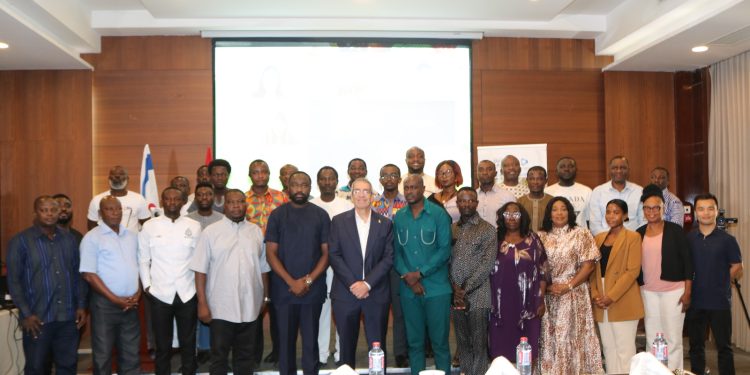Ghana’s Vegetable Sector Facing Climate, Irrigation, and Financing Challenges – VEPEAG President Says
Dr. Felix Kamassah, President of the Vegetable Producers and Exporters Association of Ghana (VEPEAG), has highlighted critical challenges confronting Ghana’s vegetable industry, including climate-related issues, irrigation deficits, and financing constraints.
Speaking at a breakfast forum on enhancing Ghana’s vegetable sector—organized by the Israeli Economic and Trade Mission in collaboration with VEPEAG—Dr. Kamassah stressed the need for smart agricultural solutions, particularly greenhouse technology and improved irrigation infrastructure.
“If I say climate issue, during the rainy season we have heavy rainfall and then during the dry season, the fields are completely dry. Everybody knows that vegetable production cannot thrive without water,” he said. “Irrigation is a major challenge, and without it, we cannot meet the high demand for vegetables.”
Dr. Kamassah also pointed out that pest control remains a significant barrier to production, emphasizing Israel’s success in leveraging technology to mitigate pest-related losses.
“Greenhouse technology and smart agriculture are the way forward. If we are talking about exports, even we ourselves need quality produce to consume before we export. We need healthy produce for a healthy population,” he remarked.
He further noted that Ghana’s irrigation infrastructure, under the Ghana Irrigation Authority, remains underutilized. “There are several irrigation sites across the country that are not functioning. Can we rehabilitate them for vegetable production?” he questioned.
Financing and Policy Implementation
Dr. Kamassah acknowledged the government’s inclusion of agriculture in the national budget but stressed that policymakers must focus on practical implementation rather than just documentation.
“The policymakers have to think about practicality. It’s not just about writing policies in a book—how are we implementing them?” he quizzed.
He also emphasized the need for financial support from banks to make greenhouse farming accessible to more farmers, noting that its high cost remains a deterrent.
“Greenhouses are expensive, and banks are hesitant to finance agriculture. It takes three years before you can even break even,” he said.
Boosting Vegetable Exports and Value Addition
Addressing the export potential of Ghana’s vegetable sector, Dr. Kamassah recalled that Ghana was once a leading exporter of chili peppers but has lost its position due to infrastructural and pest-related challenges.
“The Ghana Export Promotion Authority (GEPA) is ready to support, but we must ensure that we produce pest-free and high-quality crops,” he added.
He also advocated for post-harvest management strategies, suggesting value addition as a way to reduce losses. “Vegetables have a short shelf life. We need to look at processing—tomato paste, dried tomato powder, even tomato soap. Other countries like Benin are already doing this,” he added.
Dr. Kamassah concluded by calling for a collaborative approach among the government, private sector, and development partners to strengthen Ghana’s vegetable industry, improve export competitiveness, and create employment opportunities for the youth.







